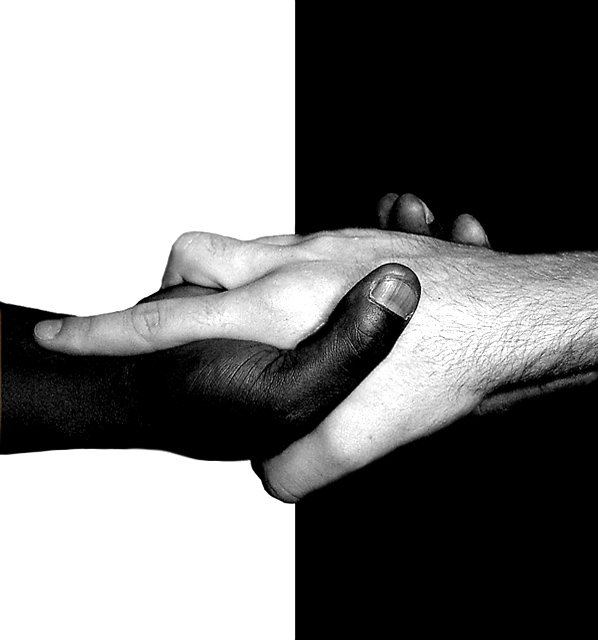People train in martial arts, self-defense, combatives, and with weapons for a number of reasons. Among the martial artists, in particular, there is the explicit or unspoken notion that what they are doing is not only about self-defense. Among some martial artists, such as those who practice certain “health and fitness” forms of Tai Chi (for example), self-defense may not be one of the goals at all. People who train in various “martial” arts and sports often do so because they enjoy the confidence, discipline, and camaraderie they gain from it. Those training in more combative and realistic systems typically feel a sense of brotherhood, too. By this term I mean a general fraternity; it is not my intent to exclude our sisters in the training community.
There’s one thing you need to understand, however: Brotherhood in training is a lie.

Most of the time there is no reason we should or would be reminded of this fact. We go, we train in whatever system it is we practice or “do,” we acquire the skills we are looking to acquire, and we enjoy the process (if you’re into that sort of thing). I remember the look of horror on my close friend and training partner’s face when I told him that I had never once enjoyed a martial arts class or seminar. I could tell he thought the concept strange, even alien, because he — like so many people who train in martial arts and self-defense styles — truly loves the practice of it.
I, on the other hand, value only the skills and abilities such training imparts. That is to say that I value what that training can give me, even though I find the exertion, the training, the exposure to potential injury, and the time commitment of training less than enjoyable. I realize I am not typical compared to my fellow students. To me, these are necessary evils. They are negatives to be endured so that the positive outcomes of the training can be acquired. I’d liken it to forcing yourself to go to the gym, even though you don’t enjoy the physical sensation of lifting weights or doing cardio, because you value the outcome on your health these necessary “evils” provide.
I describe this because I want you to understand that not everyone sees training in the same way. We all have secret thoughts and feelings about it. Our motivations differ. An aspect of this that many students have in common is a secret insecurity. Many of us compare ourselves to others, particular those we don’t know well. As a result, you’ll see this attitude most evident in seminars (where often, the participants don’t have previous knowledge of each other). The issue is amplified because you’re often learning completely new material at a seminar. Thus, the rate of failure is higher as you acquire those new skills and try to get the hang of what you’re doing. Failure — looking silly, even unskilled — is part of the process. As the meme says…
Especially in an environment involving a high rate of failure, students look at each other and rate themselves against their “competition.” Inwardly, many of the students are hoping, simply, that they don’t perform worse than everyone else. Nobody wants to be the “last guy,” and everybody is hoping that there is a “last guy” to look down on. “I may not be picking this up as fast as many of the others,” we think, “but I’m doing better than that guy. Just look at that tool.”
Good people, people who understand that training is all about facing the external enemies that are society’s predators, feel that sense of brotherhood I described. They look at their training partners and they see people who are all on the same side, people who are “all in this alone together,” to borrow a famous coach’s tag line. They see failure as part of the process and aren’t making judgments (except maybe to be critical of themselves).
Their shared goal, like mine when I engage in the “necessary evils” of exertion, the humbling experiences of failure in acquiring new skills, and the potential inconveniences of experiencing injuries in this pursuit, is to learn the skill-set of self-defense. They are hoping for their fellow students’ success. They see their fellow students as brothers (and sisters).
The problem is that some of your “brothers” in training, some of the people from whom you expect that camaraderie and amity, don’t feel this way. These people are so insecure, deep down inside, that they aren’t just hoping for a “last guy” to look down on. They’re actively hoping to identify, malign, and misrepresent some of their training partners so they can feel better about themselves. We’ve all known people like this. They are people who are not happy unless they are running other people down. They feel somehow more confident in themselves and their abilities as long as they have someone to attack.
I’ve experienced this a couple of times myself. Some years ago, a former instructor of mine was offended when I left his school to train in a different system. He took to the Internet, telling the world that I was a poor student. This was false and, confronted with his lies, the instructor eventually stopped attacking me.
Quite some time after that, I attended one in a series of firearms training classes. I liked everyone there and, while I still did not “enjoy” the classes as such (as I’ve previously described), I valued very much the skills they gave me. The instructors under whom I trained are the highest caliber of people I’ve met and I respect them tremendously. I was therefore amazed when, years later, I found an old post from a fellow student in one of those classes, speaking ill of me and my abilities. When I phoned him to ask why on Earth he would have attended that class only to back-stab a fellow student, he got embarrassed and angry and hang up on me.
These are just two examples. You most likely have some in your own life and in your own training background. As I did not, you may not even know one of your fellow students, or a former (or current) instructor, is speaking ill of you. It may dismay you to learn that this has happened. You may be shocked or surprised. Don’t be.
The lesson you must learn is simple. There is no brotherhood in training. There are only human beings. Some human beings are incredibly insecure and, rather than focus on the threats out there, will focus on who they think they can surpass in the here and now. It’s the wrong attitude and it’s the wrong focus. You’re not training to feel better than your training partners; you’re working to acquire skills that will save your life when it is threatened. You’ll simply have to acknowledge that this goal, which matters, is not shared by some of your “brothers” and “sisters.” Approach your training, therefore, with a “trust, but verify” attitude where your martial “family” is considered. You’ll be a lot better off — and you’ll be less likely to gather knives in your back.

I am very impressed by the good sense you bring to the field.
Thanks for the good work you do!
Please put me on your mailing list.
Thank you.
This is true even in the military.
A lot of the guys in my boot camp platoon were generally awful people (one of them even got arrested for stealing a Beretta pistol before he could even graduate!).
I’m a pretty friendly and easy-going guy, so it took me by surprise when one of my fellow boot camp backstabbed me. We bumped into each other in the middle of some other activities at our first post. We were chatting up some girls and this guy immediately brought up something embarrassing from boot camp to try to sandbag me and make himself look better in the process (I don’t think it worked, lol).
This immediately destroyed my trust in the guy and all of the friendliness that we had established in boot camp. Prior to this, I had no idea he was shady enough to turn on a friend like that.
Granted, this guy wasn’t a GOOD friend (none of my good friends ever screwed me over like that), but he was a guy that I had been casually friendly with before that.
This was a stark contrast to the usual deal when you meet somebody familiar in the military. Usually, your fellow soldiers are much friendlier than they were before because they’re happy to see somebody they know (the military is BIG and people move around a lot, so it’s nice to see somebody you know). Even if you didn’t know each other well, or even if you weren’t exactly friends before, you will usually become friends when you see them again (sometimes even getting GOOD friends in the process).